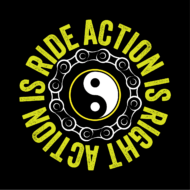I was reading an article over at the Atlantic, The Prophecies of Q – this stuff is remotely interesting, in a car-crash kind of way. One part struck me:
In a Miami coffee shop last year, I met with a man who has gotten a flurry of attention in recent years for his research on conspiracy theories—a political-science professor at the University of Miami named Joseph Uscinski. I have known Uscinski for years, and his views are nuanced, deeply informed, and far from anything you would consider knee-jerk partisanship. Many people assume, he told me, that a propensity for conspiracy thinking is predictable along ideological lines. That’s wrong, he explained. It’s better to think of conspiracy thinking as independent of party politics. It’s a particular form of mind-wiring. And it’s generally characterized by acceptance of the following propositions: Our lives are controlled by plots hatched in secret places. Although we ostensibly live in a democracy, a small group of people run everything, but we don’t know who they are. When big events occur—pandemics, recessions, wars, terrorist attacks—it is because that secretive group is working against the rest of us.
QAnon isn’t a far-right conspiracy, the way it’s often described, Uscinski went on, despite its obviously pro-Trump narrative. And that’s because Trump isn’t a typical far-right politician. Q appeals to people with the greatest attraction to conspiracy thinking of any kind, and that appeal crosses ideological lines. QAnon carries on a tradition of apocalyptic thinking that has spanned thousands of years. It offers a polemic to empower those who feel adrift.
– Adrienne LaFrance, The Atlantic
Normally I wouldn’t have mentioned it, but it made me think immediately of a quote I read recently from Alan Moore:
“Yes, there is a conspiracy, indeed there are a great number of conspiracies, all tripping each other up … the main thing that I learned about conspiracy theories is that conspiracy theorists actually believe in the conspiracy because that is more comforting. The truth of the world is that it is chaotic. The truth is, that it is not the Jewish banking conspiracy, or the grey aliens, or the twelve-foot reptiloids from another dimension that are in control, the truth is far more frightening; no-one is in control, the world is rudderless.”
– Wikipedia
I remember this quote striking me as the notion of the ‘truth being that no-one is in control’ could be viewed as frightening – or conversely, liberating, if you so choose. The realization that things aren’t the way they are for you due to someone else’s actions or plans – or another being entirely, but rather because they simply are what is, provides one a great deal of latitude. Deciding how you are going to process and accept that knowledge can go a long way in helping you decide how to comport yourself moving forward.
